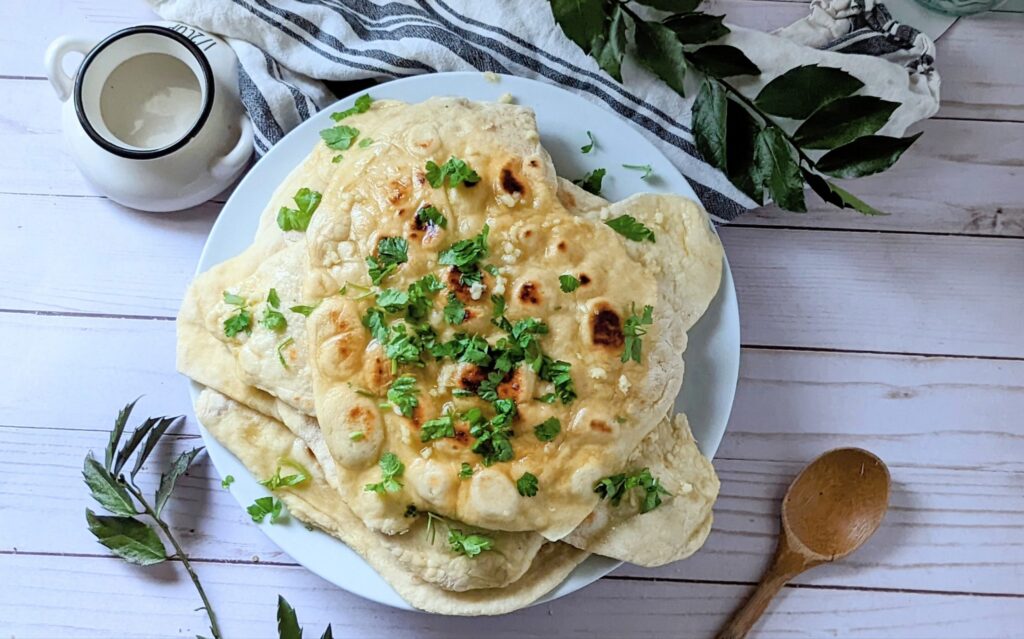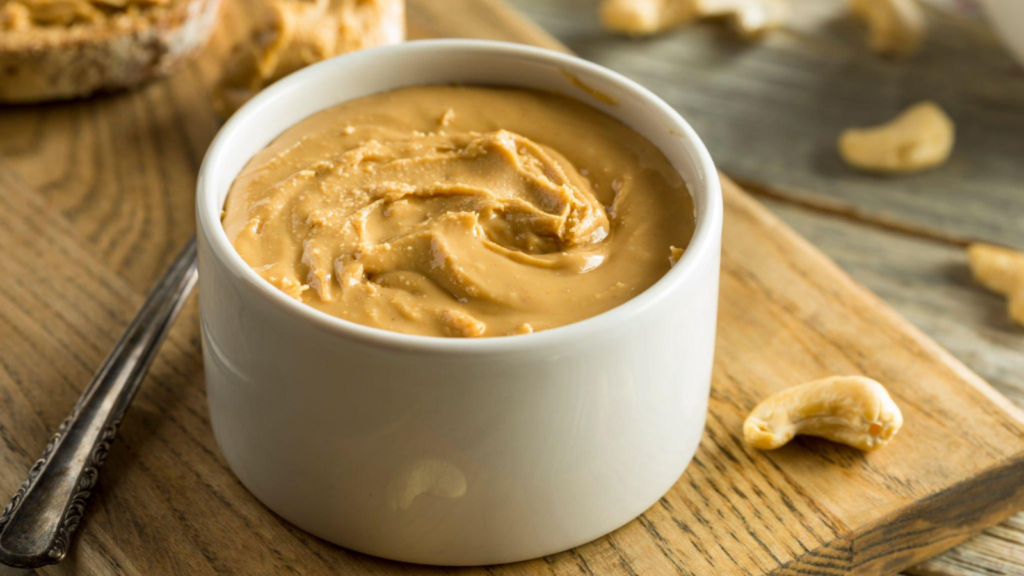Naan bread is a beloved staple in many cuisines, particularly in South Asian dishes. But is naan bread healthy? This question frequently arises as people become more health-conscious. This article delves into the nutritional aspects, health benefits, potential downsides, and how naan can fit into a balanced diet. By the end, you’ll have a clearer understanding of whether naan bread deserves a place on your plate.
Understanding Naan Bread
Naan is a soft, pillowy flatbread traditionally baked in a clay oven called a tandoor. It’s often made with white flour, water, yogurt, and yeast, sometimes enriched with milk or butter. Naan is served with various dishes, from curries to grilled meats, making it a versatile companion in meals.
Types of Naan
There are many varieties of naan, including:
- Plain Naan: The classic version.
- Garlic Naan: Infused with garlic and sometimes topped with herbs.
- Cheese Naan: Stuffed with cheese, often mozzarella or paneer.
- Roti Naan: A healthier option made with whole wheat flour.
Each type offers different flavors and textures but shares a common base.
Nutritional Profile of Naan Bread
To determine whether naan bread is healthy, we must first look at its nutritional composition. Here’s a typical breakdown of a standard serving (approximately 100 grams) of plain naan:
| Nutrient | Amount per 100g |
|---|---|
| Calories | 274 |
| Carbohydrates | 53g |
| Protein | 8g |
| Fat | 5g |
| Fiber | 2g |
| Sodium | 558mg |
Key Nutritional Components
- Carbohydrates: Naan is primarily a source of carbohydrates, providing energy.
- Protein: It contains a moderate amount of protein, especially beneficial in vegetarian diets.
- Fats: The fat content can vary, especially in versions that include butter or oil.
- Fiber: Whole wheat naan versions can offer more fiber.
Health Benefits of Naan Bread
Despite its high carbohydrate content, naan bread can offer several health benefits when consumed in moderation.
- Fuel for Energy: Naan bread is a great source of carbohydrates, which are essential for energy. This makes it an excellent choice for those with active lifestyles.
- Versatile Pairing: Naan complements various dishes, providing a vehicle for nutrients. Pairing with protein-rich foods like lentils or meats enhances its overall nutritional value.
- Source of B Vitamins: Naan contains B vitamins, particularly B6 and niacin, which support metabolism and energy production.
- Probiotic Benefits: When made with yogurt, naan may offer some probiotic benefits, improving gut health and digestion.
- Satiety: Its dense texture may help you feel fuller for longer, potentially reducing overeating.
Potential Downsides of Naan Bread
While naan has its benefits, there are also several downside to consider.
- High in Calories: Naan can be calorie-dense, especially varieties loaded with butter or cheese. Those watching their caloric intake should consume it in moderation.
- High in Carbohydrates: For individuals following low-carb diets, naan may not align with their nutritional goals.
- Gluten Content: Traditional naan is made from wheat flour, which contains gluten. Those with celiac disease or gluten intolerance should avoid it or seek gluten-free alternatives.
- Sodium Levels: Some naan varieties can be high in sodium, which may pose risks for individuals with high blood pressure or heart issues.
Naan vs. Other Breads: A Comparison
To assess whether naan is indeed healthy, it’s useful to compare it with other popular bread types:
| Type of Bread | Calories (per 100g) | Carbohydrates | Protein | Fat |
|---|---|---|---|---|
| Naan | 274 | 53g | 8g | 5g |
| White Bread | 265 | 49g | 9g | 3g |
| Whole Wheat Bread | 247 | 41g | 9g | 4g |
| Roti | 210 | 45g | 6g | 3g |
Key Takeaways
- Calories: Naan is slightly higher in calories than white and whole wheat bread.
- Carbohydrates: Naan has a higher carbohydrate content compared to whole wheat bread and roti.
- Protein: Protein content is comparable across options.
- Fat: Naan often has more fat due to added ingredients.
How to Include Naan Bread in a Healthy Diet
If you love naan but want to ensure it fits into a healthy lifestyle, consider these tips:
- Choose Whole Wheat Naan: Opt for whole wheat naan when possible. This variation typically has more fiber and nutrients.
- Watch Portion Sizes: Enjoy naan in moderation—consider half a piece or a smaller size.
- Pair Wisely: Combine naan with protein-rich and fibrous foods, such as lentil dal or a vegetable curry, to round out your meal.
- Avoid Excessive Toppings: Limit high-calorie toppings like butter or oil. You can also try making your naan at home using healthier oils or toppings.
- Opt for Healthy Alternatives: If you’re looking to scale back on carbs, experiment with alternatives like roti or cauliflower naan.
Is Naan Healthy for Weight Loss?
When considering if naan is healthy for weight loss, moderation and portion control are key. Traditional naan is calorie-dense, primarily due to its white flour content and potential added fats like butter. However, opting for whole wheat naan can provide more fiber, which aids digestion and promotes satiety, making you feel fuller longer. Pairing naan with nutrient-dense foods, such as lean proteins and vegetables, can enhance its health benefits. Ultimately, while naan can fit into a weight loss diet, it should be consumed mindfully and balanced with other healthy food choices to achieve optimal results.
Is Naan Bread Healthy for Diabetics?
When evaluating if naan bread is healthy for diabetics, it’s essential to consider its carbohydrate content. Traditional naan is made from refined flour, which can cause rapid spikes in blood sugar levels. Whole wheat naan may be a better option, as it contains more fiber, potentially leading to a slower release of glucose into the bloodstream. Portion control is also crucial; consuming smaller amounts can help manage carbohydrate intake. Pairing naan with protein-rich or fiber-rich foods, such as legumes or vegetables, can further stabilize blood sugar levels. Overall, diabetics should approach naan mindfully and consult healthcare providers for tailored advice.
Conclusion: Is Naan Bread Healthy?
So, is naan bread healthy? The answer isn’t straightforward.
Naan can be part of a balanced diet, especially when made with whole ingredients and paired with nutritious accompaniments. However, it may not suit everyone’s dietary needs—especially those on a low-carb or gluten-free diet.
Final Thoughts
As with many foods, moderation and balance are key. Naan can be a delightful addition to your meals when consumed mindfully. Keep experimenting with different types and techniques, and you might just find the perfect healthy version of this traditional bread! Remember, the goal is to enjoy your food while maintaining a balanced lifestyle.


